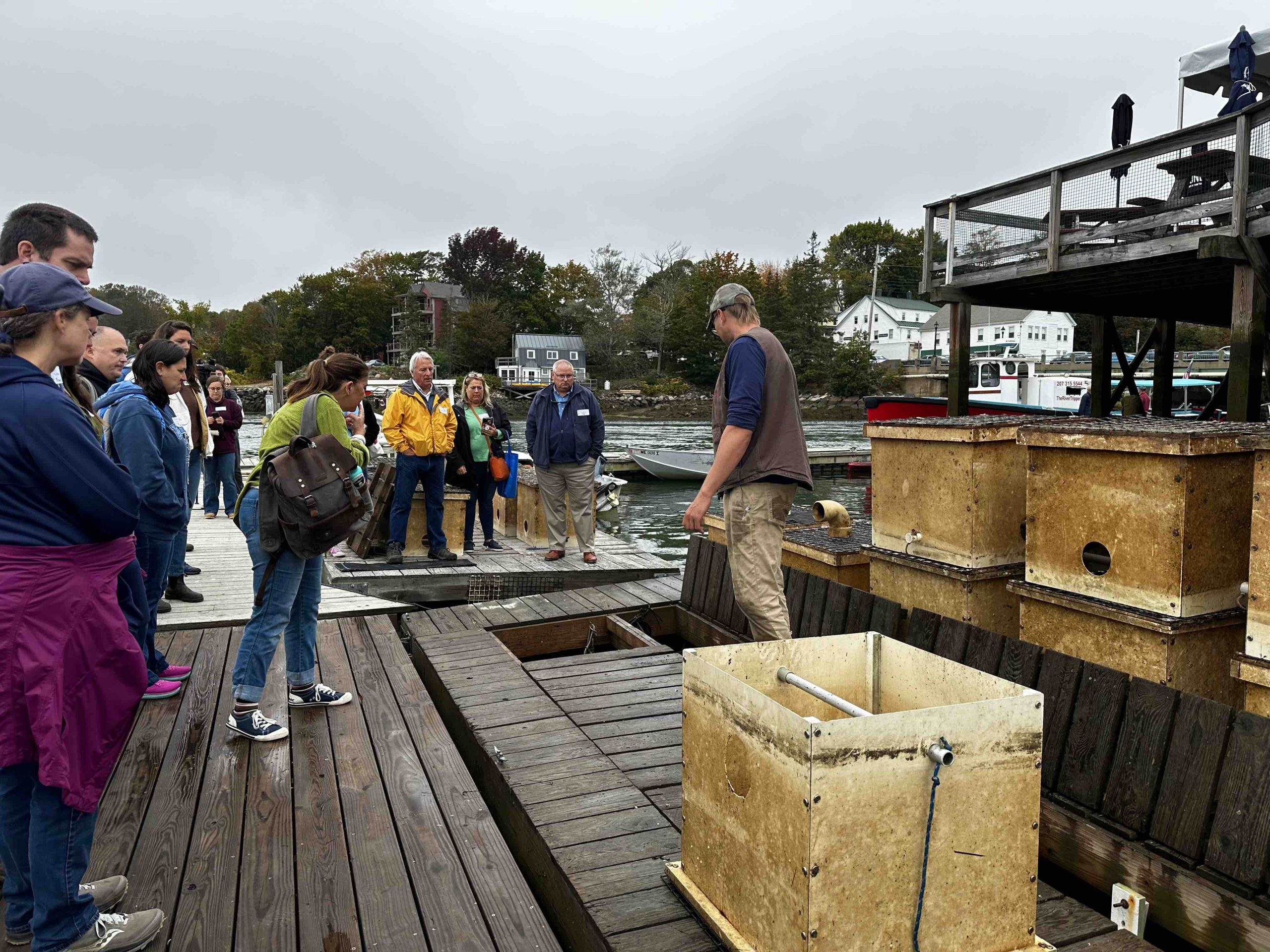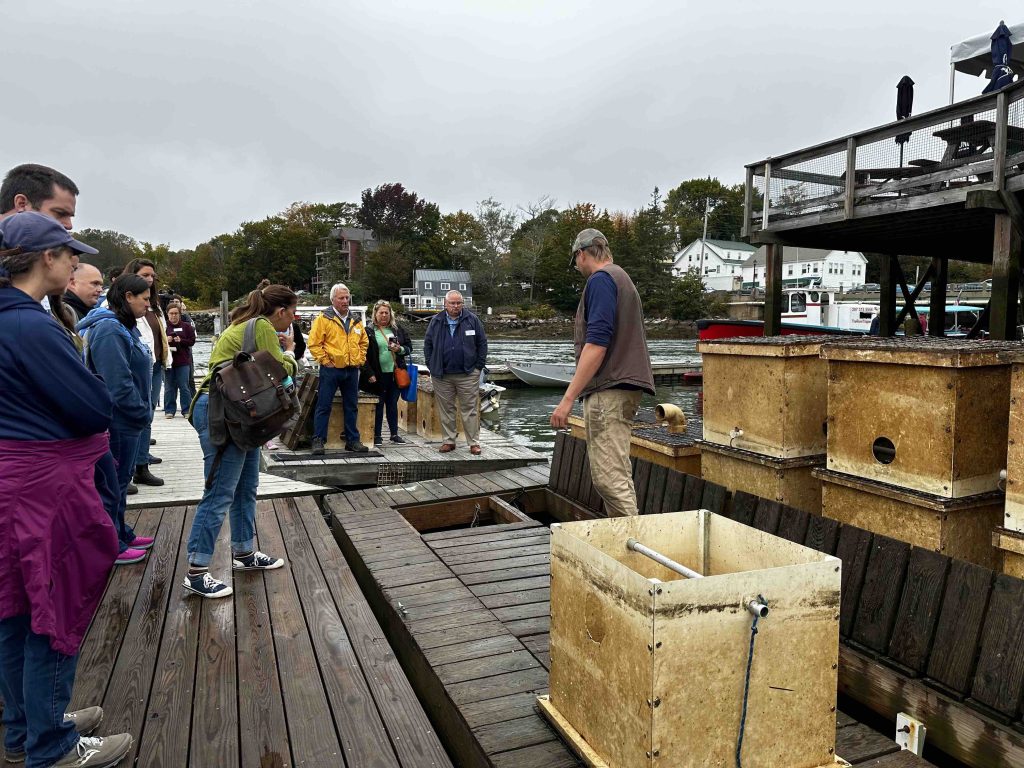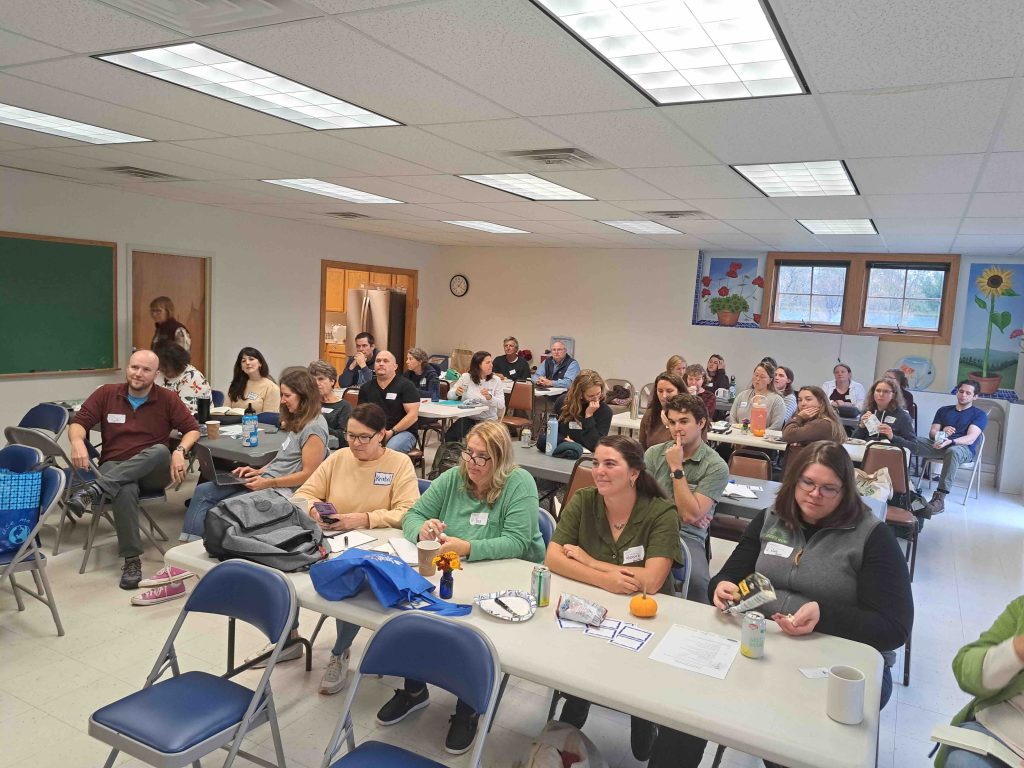
SEAMaine Educator Summit Provides In-depth Look into Maine’s Aquaculture Sector
DAMARISCOTTA, ME — Last Friday, Damariscotta served as a vibrant learning hub with the SEAMaine Educator Summit. This event drew participants from all over the aquaculture sector, providing educators with invaluable insights into Maine’s aquaculture industry, starting with seed sourcing at the upweller, an informative river cruise, and concluding with collaborative meetings among the participants.

Aboard the boat were individuals from various corners of the sector, including representatives from Maine Sea Grant, Maine Aquaculture Innovation Center, SEA Maine, the Aquaculture Research Institute, Lobster Institute, and Cooperative Extension, and Southern Maine Community College to name a few. The diversity of attendees brought a variety of perspectives and a wealth of knowledge to the discussions, creating a rich and inclusive learning environment.
The day kicked off with a hands-on session at the dock around the upweller – a system used for growing oyster seeds in a controlled environment, optimizing their development – providing foundational knowledge about seed sourcing. This set the stage for the subsequent river cruise on the Damariscotta River, an educational opportunity allowing participants to delve into various aspects of the oyster aquaculture industry. Carter Newell, a seasoned oyster farmer, offered a first-hand experience of oyster harvesting while shedding light on different cultivation methods.

A stop at the workfloat tumbler, a device designed to gently tumble oysters, promoting their growth and forming a desirable shape and thickness of shell, affording participants a closer look at its significant role and operation in oyster aquaculture, enhancing their grasp of industry practices.
Anne Langston Noll, one of SEAMaine’s Co-Chair of the Workforce Development Committee, engaged the attendees with answers to a broad array of questions from lease applications to harvesting techniques, offering insights into the wider scope of aquaculture and underscoring the need for workforce development. The summit underlined the importance of proficiency and skills across all facets of aquaculture, equipping educators to steer their students towards careers in the sector.
As the morning session concluded, educators transitioned to afternoon presentations, moderated by Keri Kaczor, another of SEAMaine’s Co-Chairs of the Workforce Development Committee, showcasing the efforts of grant recipients working to advance workforce curriculum and training modules in Maine’s seafood industry. These grants, strategically designed to bolster Maine’s seafood economy, seek to build capacity for creating new curriculum and training modules, as well as attracting fresh, young talent to the sector.
During the afternoon session, presenters explored a diverse array of topics, ranging from virtual workforce awareness initiatives to hands-on aquaculture education and the creation of mariculture training modules. These initiatives have a dual impact, nurturing talent within specific sectors while contributing to the overall resilience and sustainability of Maine’s seafood economy.

Each presentation brought a unique perspective on how these initiatives support the growth and sustainability of Maine’s seafood sector as a whole. Educators shared project summaries showcasing successful strategies and discussed valuable lessons learned. Their insights offer actionable knowledge that can be applied across the seafood value chain, from harvest to distribution. The afternoon session served as an incubator for inventive ideas and approaches that will shape the future of Maine’s seafood industry, ensuring its competitiveness on a global scale.
Throughout the summit, the collaborative spirit among educators and industry experts highlighted SEA Maine’s role in fortifying the seafood value chain, underscoring its significance in the industry’s collective growth and development
The SEAMaine Educator Summit not only provided educators with valuable insights into Maine’s aquaculture and seafood industry but also served as a catalyst for collaboration and innovation across the seafood sector. It exemplified the dedication and passion of individuals and organizations working together to nurture the next generation of seafood professionals in Maine, positioning the state’s seafood industry for ongoing strength and adaptability in an ever-changing global landscape.
For additional details and media coverage, click here.

